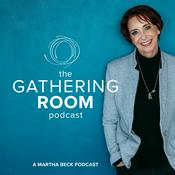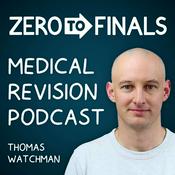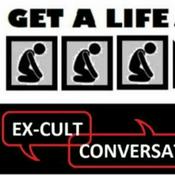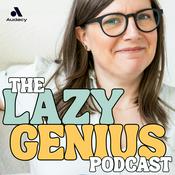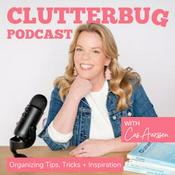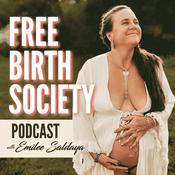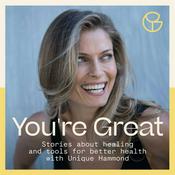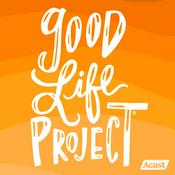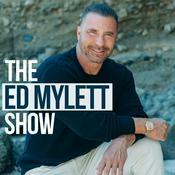46 episodes
- In this episode, I explore the bidirectional relationship between the pelvic floor and our psychological state. How stress, anxiety, grief, identity shifts, and prolonged effort can shape pelvic floor tone, and how pelvic floor tension can feed back into how safe and settled we feel in our bodies.
This is not an episode about blaming stress, over-psychologising symptoms, or replacing pelvic floor physiotherapy. It’s an invitation to widen the lens.
We’ll talk about:
Why pelvic floor exercises don’t always “work”
How anxiety and low mood can influence muscle tone and recovery (without pathologising)
What research tells us about pelvic floor outcomes when psychological load is high
My own postpartum experience of pelvic floor tension, sexual discomfort, constipation, and grief, and what I didn’t realise at the time
A guided exercise for releasing tension and tightness in the PF.
If this episode resonates, let it be a prompt to think beyond physiology alone, to seek support, and to work with pelvic floor specialists who understand the whole picture, body, nervous system, and life context.
If you’re looking for a practical, anatomy-driven breakdown of the pelvic floor — without much psychology — this is an excellent companion episode to listen to alongside this one:
https://www.youtube.com/watch?v=xmlwtsJXrc0
A key paper discussed in this episode, exploring the relationship between pelvic floor dysfunction and symptoms of anxiety and depression, and how psychological state may shape response to pelvic floor physiotherapy:
https://doi.org/10.3109/01443615.2013.813913
Helen KeebleHelen’s work is thoughtful, evidence-based, and deeply respectful of the nervous system and lived experience.
https://helenkeeble.com/
Sydney Pelvic ClinicIf you’re based in Sydney, this team is exceptional. They are highly skilled, compassionate, and genuinely holistic in their approach.
https://www.sydneypelvicclinic.com.au/ #43 - Abs, Belly Fat & the Truth About Women’s Cores (Pregnancy, Pressure & Six-Packs) Why it works:
29/1/2026 | 41 mins.Abs. Belly fat. Six-packs. Post-baby pouches.
In this episode, we unpack why women feel so conflicted about their bellies; and why that pressure isn’t rooted in biology at all. We dive into culture, pregnancy, the pelvic floor, pressure management, and what your abs actually do, then finish with clear, practical guidance so you can train your core with confidence.
This episode is not anti-aesthetics - in fact, it's more about asking why the aesthetics obsession exists and finding ways to channel it in a healthy way.
Hope you enjoy it as much as I enjoyed researching for it. The historical stuff was my fave.- I was so wrong and psychology has demonstrated why and HUMBLED MEEEEE.
If you’ve ever felt like you know what to do for your training but still can’t seem to stick to it, this episode is for you. We explore why education alone doesn’t change behaviour, how uncertainty changes your relationship with your body, and why inconsistency is often a logical response, not a failure.
This episode offers a new way to understand your training struggles and a calmer path back to consistency.
Bring your pen and paper to this episode so we can really make this practical TOGETHER. - Why does everyone in the fitness space seem to be pitting these two against each other?
Why are prominent doctors who specialise in women's health suggesting that pilates isn't enough?
Do you have to give up Pilates to maintain a truly healthy body?
All of this was answered and so much more. I was on a MASSIVE mission to clear up the confusion with this frustrating online debate.
Let's go! - We often talk about exercise helping mental health, but not always why.
In this episode, I unpack a lesser-known system that links movement, emotional regulation, and even sleep–wake rhythms. If your anxiety tends to show up in the body before the thoughts, this one will likely resonate.
Resources:
Hilber, P., Cendelin, J., Le Gall, A., Machado, M.-L., Tuma, J., & Besnard, S. (n.d.). Cooperation of the vestibular and cerebellar networks in anxiety disorders and depression.
Vlassopoulos, E., Mychasiuk, R., & Yamakawa, G. R. (n.d.). Does the brain’s vestibular system contribute to synchronisation of circadian rhythms?
Rajagopalan, A., Jinu, K. V., Sailesh, K. S., Mishra, S., Reddy, U. K., & Mukkadan, J. K. (n.d.). Understanding the links between vestibular and limbic systems regulating emotions.
More Education podcasts
Trending Education podcasts
About The Vertue Podcast
A psychology-led podcast on health, movement, and behaviour change. Exploring why knowing what to do isn’t enough, and how to build consistency by understanding the mind–body relationship. Honest conversations, occasionally uncomfortable truths.
Podcast websiteListen to The Vertue Podcast, anything goes with emma chamberlain and many other podcasts from around the world with the radio.net app
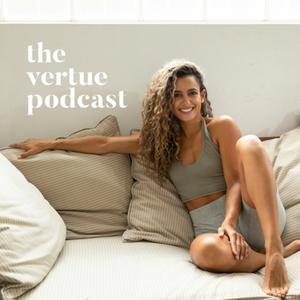
Get the free radio.net app
- Stations and podcasts to bookmark
- Stream via Wi-Fi or Bluetooth
- Supports Carplay & Android Auto
- Many other app features
Get the free radio.net app
- Stations and podcasts to bookmark
- Stream via Wi-Fi or Bluetooth
- Supports Carplay & Android Auto
- Many other app features


The Vertue Podcast
Scan code,
download the app,
start listening.
download the app,
start listening.











